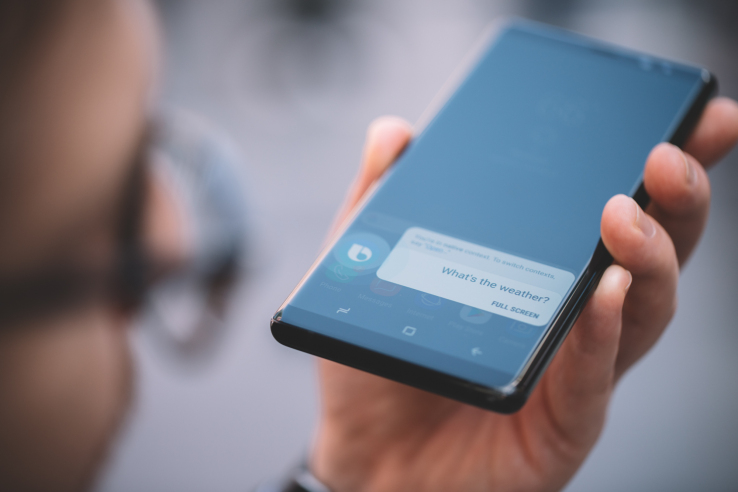

No surprise, Samsung is making the connected home a big focus of its annual Developer Conference this week in San Francisco. DJ Koh, the company’s head of Mobile Communications took to the stage at Moscone Center to reveal a spate of different announcements focused on connected devices, as the company works to build a cohesive narrative around its approach.
Up to now, the company’s take on the space has been pretty scattershot, with three distinct IOT services — SmartThings, Samsung Connect, and ARTIK — all falling under the banner. The services are being consolidated and rebranded the SmartThings Cloud, adopting the name of the startup the company acquired back in 2014 for around $200 million. At the very least, that should go a ways toward alleviating confusion for the company.
The event also marked the launch of the latest version of the company’s AI. Bixby 2.0 is set to start rolling out across the company’s line of connected products, including handsets, TVs and refrigerators, helping early adopters achieve the long-standing dream of talking to their appliances about sports scores.
The new version of the company’s Alexa/Siri/Assistant competitor should take a solid step forward as Viv finally starts to integrate with the service, bringing more natural language feature, and opening Bixby up to third parties via the SDK. The developers kit will be launching to a select number of partners through a beta program, with a public launch coming in “the near future.” Of course, actually convincing developers to develop for Bixby could be a tricky proposition if it doesn’t receive more widespread adoption.
The smart assistant stumbled out of the gate when it launched without voice recognition here in the States. And the company’s acquisition of Viv happened just before the service’s launch, precluding any meaningful integration on that front. Thus far, devices like the Galaxy S8 and Note 8 have been the key to the company’s Bixby strategy. Ahead of the launch of the latter, the company told me that around 30-percent of S8 owners had activated the service on their device.
It’s not a super promising number, and doesn’t represent the number of users actively engaging with Bixby, but hopefully a more robust second generation will convince more users to embrace the AI. At the very least, Samsung is uniquely positioned in that it produces a much wider range of hardware than Amazon, Apple, Google or Microsoft. With washing machines and refrigerators, the company has an interesting leg up in the connected home.
To reach beyond that, Samsung also showed off Project Ambience, which only sounds like a Brian Eno cover band. It’s actually a Bixby delivery service for third-party projects. The company describes it as either a dongle or chip. As the name implies, the whole thing is still early stages, so the company’s not letting a lot out here, but it sounds similar to kits Amazon has released to make it easier to add Alexa to more hardware. Though Samsung’s own efforts sound decidedly more user friendly, with a plug and play approach to getting Bixby on board.
One other nugget from the conference is worth noting: Samsung is also teaming with Google to bring the ARCore SDK to the S8 and Note 8, to help foster AR development for its mobile devices.

